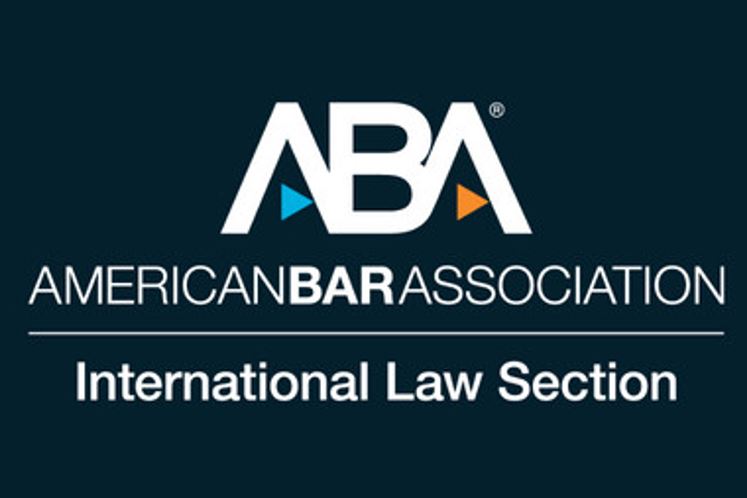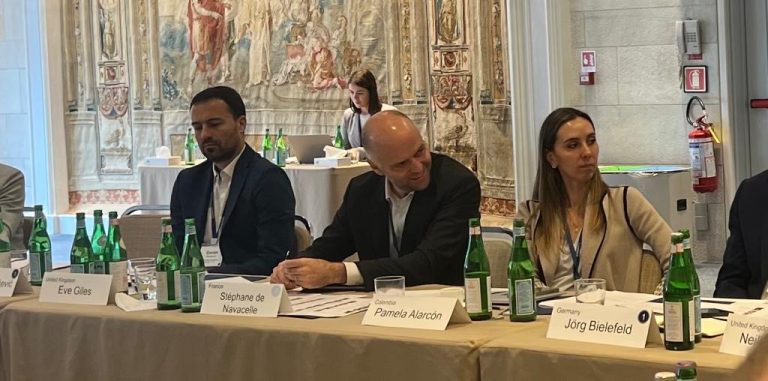I. Can allegations of corruption serve as a bar to jurisdiction of arbitral tribunals or admissibility of claims?
Under Spanish law – Article 22 of the Arbitration Act 60/2003 (AA) – the principle (unanimous and uncontested in its application) of Kompetenz-Kompetenz – which constitutes the separability of the arbitration agreement from the main contract, in the sense that the validity of the arbitration agreement does not depend on the validity of the main contract and that the arbitrators have jurisdiction to judge even the validity of the agreement itself – is established.
The generic term ‘jurisdiction’ must be understood to include not only the issues that strictly speaking are such, but also any issues that may prevent a decision on the merits of the dispute (except those relating to the persons of the arbitrators, which have their own treatment).
Arbitral tribunals should thus conduct the arbitration in the most expedient manner possible, including full discretion to decide whether or not to proceed with the arbitral proceedings if corruption is invoked.
As in France, findings relating to corruption, which fall within the competence of the arbitrators, will in principle not affect the admissibility of claims, although this will depend on the law applicable to the merits of the dispute and not on the AA. In Spain, allegations of corruption are unlikely to lead to the inadmissibility of claims, at least without an examination of the merits.
II. Can allegations of corruption affect the validity of an arbitral award?
For the resolution of this question we must differentiate between two moments, (i) if the award has not yet been issued or is in the production phase; or (ii) if the arbitral award has already been issued.
In Spain, if the arbitral award has not yet been issued and during the proceedings allegations of corruption are made and the arbitral tribunal shares this consideration, by virtue of the provisions of the New York Convention and Article 41, numeral 1, letter f) of the Spanish AA – which establishes that awards that are ‘contrary to public order’ shall be annullable -, taking into account that corruption is a substantial violation of international public policy, the arbitral tribunal should not make the award until it confirms whether the alleged corruption effectively affects the underlying contract or agreement in order to avoid a possible subsequent judicial declaration affecting the validity of the award.
If the arbitral award has already been rendered, the High Court of Justice of the respective Autonomous Community can invalidate those awards that affect public order (including corruption, money laundering and the fight against terrorism). In this way, the reviewing judicial body can analyze the existence or not of corruption in order to determine the validity or nullity of the award.
III. In annulment or enforcement proceedings, can the court review the award and the merits to determine whether corruption or related offences affect the underlying dispute?
In award annulment proceedings in Spain, the High Court of Justice of the respective Autonomous Community does not ‘review’ the award and the merits, but it can invalidate awards that affect domestic or international public order if it is proven that corruption or related offences affect the underlying dispute.
As in France, in proceedings for recognition and enforcement of the award, the court can review whether they are in conformity with domestic or international public policy.
IV. Can courts review corruption allegations which have not been raised in the arbitration?
In Spain, the object of the annulment action is not the dispute between the parties but a review, on specified grounds, of the validity of the award.
As these grounds include breach of public policy, the High Courts of Justice may review allegations of corruption, even if they were not raised in the arbitration.
V. Do courts defer to the arbitral tribunal’s finding that no corruption acts were committed?
In Spain, courts are not obliged to defer to the findings of the arbitral tribunal as to whether or not acts of corruption were committed. Courts may examine the question of corruption if it is alleged that the award violates public policy rules.
VI. Is there a standard of proof used by arbitrators and reviewing courts to assess the existence of corruption?
In Spain, there is no specific standard of proof regulated by the law applicable to arbitration proceedings in corruption cases. However, arbitrators may adopt various approaches depending on the context of the particular case, including the ‘preponderance of the evidence’ or ‘balance of probabilities’ standard, which implies that corruption must be more likely than not to be considered proven. This standard is common in civil and arbitration proceedings where the party alleging corruption must prove its existence with evidence suggesting that it is more likely than not to have occurred, in light of the available evidence.
In addition, Spanish arbitrators, like their international counterparts, may use ‘circumstantial evidence’ or ‘indirect evidence’ when direct evidence of corruption is not available. This approach allows considering a set of indications or ‘red flags’ (e.g. disproportionate payments, lack of evidence of services rendered, accounting irregularities, etc.) that, when evaluated as a whole, can form a sufficient basis for concluding that corruption existed. In this way, it seeks to ‘connect the dots’ to obtain a complete factual picture to prove the existence of corruption, applying an approach similar to that used in international arbitrations such as the ICSID-arbitrated case of Metal-Tech v. Uzbekistan, in which:
«Pakistan discovered new evidence of alleged corruption which it submitted after the hearing on jurisdiction and merits and which the arbitral body examined and ruled on in a separate decision on the admissibility of the investor’s claims,52 demonstrating that the relevance and gravity of such allegations are taken into account by arbitral bodies and, despite being submitted very late in the proceedings (when the Tribunal was already drafting its Decision on jurisdiction and liability) justify their examination.».
VII. Which method do arbitrators and reviewing courts employ to establish evidence of corruption?
In Spain, arbitrators can use methods similar to those used by international arbitration tribunals to establish evidence of corruption, such as the use of ‘red flags’. These ‘red flags’ are indicators or warning signs that may suggest the existence of corruption, such as lack of evidence of services rendered, accounting irregularities, deficiencies in compliance with rules, or a clear disproportion between services and payments received. In addition, arbitrators may consider the context of widespread corruption in a country or sector as a relevant element in assessing the evidence.
Spanish courts reviewing arbitral awards may also take into account these indications or ‘red flags’ when assessing whether an award may be annulled or not recognized on public policy grounds. However, it is important to note that, in Spain, national courts do not usually substitute their judgement for that of the arbitral tribunal, unless a serious procedural violation has been committed or public policy has been violated.
VIII. Are arbitrators seated in your jurisdiction bound by criminal proceedings on issues that could impact the underlying arbitration dispute?
In Spain, criminal offences are not arbitrable, and arbitrators have no jurisdiction to hear criminal offences. However, arbitrators retain the authority to resolve the civil consequences of such offences.
Regardless of the above, doctrine and case law have ruled in favour of the application to arbitration of ‘pre-judicial criminal proceedings’; in an ‘unquestionable’ manner according to the Judgment of the High Court of Justice (STSJ) Madrid, 10/2019, of 22 March. The STSJ Andalucía (Granada), Sala de lo Civil y Penal, 12/2021, of 17 June, bases this on the fact that ‘the identity of reason (art. 4.2 CC) must prevail over the differences in nature existing between the arbitration award and the judgement’: not applying the rule of pre-judicial by analogy ‘could lead (at least hypothetically) to the parties freely disposing a priori, and with the effects of both res judicata and enforceability, of the civil consequences of a crime’. There is no obstacle to the arbitrator, in order to decide whether to suspend the arbitration proceedings, being able to examine the facts that are the subject of the criminal proceedings, which cannot be the subject of the arbitration, because his ruling on them is for the ‘sole purpose of prejudicial effects’.
IX. To what extent do they rely on or defer to findings from parallel criminal investigations?
If the criminal or corruption proceedings are in their early stages and the outcome is uncertain, an arbitral tribunal may be reluctant to stay the proceedings, as it may result in undue delay and prejudice the parties. On the other hand, if the criminal or corruption proceedings have advanced significantly and the outcome is imminent, an arbitral tribunal may be more inclined to stay the proceedings to await the outcome of the criminal or corruption proceedings, as it may provide relevant evidence or affect the credibility of the parties.
In addition to the stage of the corruption proceedings, the nature and gravity of the criminal charges may also be a relevant consideration for an arbitral tribunal. If the criminal allegations are of a serious nature and pose a significant risk of undermining the integrity of the proceedings, a court or arbitral tribunal may consider suspending the proceedings to ensure that justice is not compromised.
X. Are remedies available when an arbitral tribunal rules that there is no evidence of corruption but subsequently a criminal ruling decides otherwise?
In Spain, when a criminal judgment subsequent to the award declares the existence of corruption, the interested parties can challenge the arbitral award by requesting its annulment or revision or oppose the recognition and enforcement of the award in national courts, arguing that the award is contrary to public policy – Article 41.1, letter e) of the AA enables them to do so.



